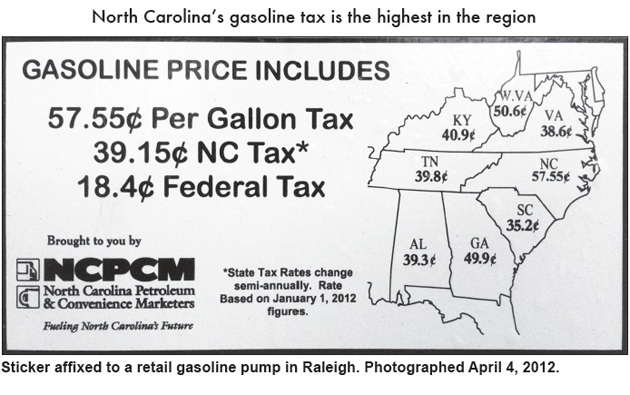Agenda 2012: Gas Tax Allocation | Eastern North Carolina Now
In March 2012, a new survey of the state line separating North and South Carolina resulted in 93 property owners being sent, as it were, into the other state.


| GOP vs. grassroots: Where to go from here? | John Locke Foundation Guest Editorial, Editorials, Op-Ed & Politics, Bloodless Warfare: Politics | State Health Plan for Employees and Retirees Reform |
|
President Joe Biden formally rejected on Monday a bill in Congress that would require individuals to show proof of U.S. citizenship to register to vote in elections for federal office.
Published: Sunday, July 14th, 2024 @ 4:04 pm
By: Daily Wire
|
|
Those with access to President Joe Biden behind closed doors say that his condition is deteriorating at an accelerated rate
Published: Tuesday, July 9th, 2024 @ 4:34 pm
By: Daily Wire
|
|
Republican lawmakers slammed President Joe Biden this week after an explosive report revealed that an ISIS-affiliated human smuggling network has brought more than 400 illegal aliens into the U.S.
Published: Monday, July 8th, 2024 @ 11:53 am
By: Daily Wire
|
|
"This is one of the reasons I left the Democratic Party."
Published: Wednesday, July 3rd, 2024 @ 8:36 am
By: Daily Wire
|
|
Parts of the gag order against former President Donald Trump in his New York hush money case were lifted by Judge Juan Merchan on Tuesday, just two days before Trump is set to square off against President Joe Biden in the first debate of the election season.
Published: Friday, June 28th, 2024 @ 10:35 am
By: Daily Wire
|
|
Viral clips showing President Joe Biden in situations in which he looks to be frail or confused are being dismissed as “cheap fakes” by the White House.
Published: Monday, June 24th, 2024 @ 7:42 am
By: Daily Wire
|
|
As the first presidential debate between President Joe Biden and Donald Trump nears, the Biden campaign is ratcheting up its attacks on the presumptive Republican nominee’s 34 felony convictions.
Published: Thursday, June 20th, 2024 @ 7:11 am
By: Daily Wire
|
|
Democrat strategist James Carville raged against the legacy media this week, demanding that they take an even more biased approach when reporting on former President Donald Trump.
Published: Friday, June 14th, 2024 @ 9:07 am
By: Daily Wire
|
|
Republican congressman Byron Donalds said it would be a “great honor” if former President Donald Trump were to ask him to be his running-mate for 2024, saying the ultimate goal is for Trump to win and he’ll do whatever he’s asked to help him do that.
Published: Thursday, June 13th, 2024 @ 7:10 am
By: Daily Wire
|